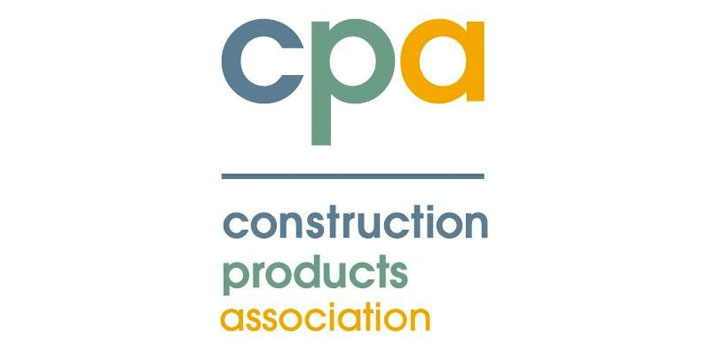
by Clair Mooney | Feb 7, 2019 | Main News Feed
New regulations released in Scotland on 1 February 2019 mean that every household must have installed the following:
- A smoke alarm fitted in the living room or lounge and circular spaces such as hallways and landings
- Kitchens must have a heat alarm
- All these alarms will have to be interlinked so that they can be heard throughout the property
- Properties with fixed combustion appliances must have a carbon monoxide alarm fitted
These new reglations extend to all homes the same requirements that are currently in force for private rented property and new builds.
Responsibility for meeting these obligations will fall to home owners and landlords.
The cost is estimated to be £200 per household, but this will vary according to what alarms are currently in place and the type of alarms to be fitted.
These new regulations come into force in February 2021.
A copy of the Scottish government announcement can be viewed here.

by Clair Mooney | Feb 1, 2019 | Main News Feed
The Construction Leadership Council earlier this week convened a meeting of over 100 industry leaders, to develop sector contingency plans for a No Deal Brexit. The conference brought together firms from across the sector, including construction contractors from across the supply chain, house builders, product manufacturing and professional services, as well as trade associations and key construction clients.
Meeting in the Institution of Civil Engineers, participants heard from a range of speakers, from the Construction Products Association, the Port of Tilbury and Government Departments, on issues including the potential impact of a no deal Brexit, the import and export of goods, migration policy and the regulation of construction products. This was followed by a discussion on the key impacts, and what companies of all sizes from across the industry can do to prepare for the possibility of a No Deal Brexit.
The following actions were agreed by participants:
- The CLC will be convening a group to address how the industry can recruit, retain and support foreign nationals within the UK construction workforce, and engages with the consultations on the Government’s Future Skills Immigration White Paper
- The CLC will work with trade associations and other bodies to understand the impact of changes to the rules on the import and export of goods within the supply chain. In the interim the CLC will encourage all construction businesses to initiate conversations with their supply chains and clients to prepare for potential disruption.
- The CLC will work with the construction products sector to promote and share guidance on potential changes to the rules on demonstrating compliance with product regulations following Brexit.
- The CLC acknowledges the challenges that preparing for a no deal represents at a business and project level. We will communicate to government the cost and complexity of mitigation and the potential impact on the sustainability and productivity of the industry. The CLC will be setting out its plans for follow up action shortly, and will be contacting all participants, and the wider industry about this event and the planned actions later this week.
Andy Mitchell, CLC Chairman said:
“Whilst a No Deal Brexit remains a possibility, firms in the construction industry have a responsibility to their employees, clients and the firms in their supply chain to plan for this. The potential impacts of a No Deal Brexit for the industry would be significant – and today marked the first steps in the industry acting together to mitigate these.
“I am pleased that we were able to collectively agree actions that will help ensure the industry has access to the workers, products and materials that it requires to deliver, and to manage any disruption.
“The Construction Leadership Council is committed to supporting the industry to help coordinate and work with those who attended – and the wider industry, to ensure that whatever happens, the industry will be as well-informed and well-prepared as possible“.
Iain McIlwee, attending on behalf of the FIS Membership stated: “This was a useful event, but it underpinned how unprepared we really are. We are a resilient and adaptable sector, but need time to prepare and manage what could be some pretty major changes. My immediate concern is the cost of potential delays due to flow of materials and products and how this will be managed within existing contractual frameworks. Force Majeure is “unforeseeable circumstances that prevent a party from fulfilling a contract” and expert advice seems to interpret this to say that Brexit was not unforeseen and hence provides little protection. In debate it was suggested that these costs would be “borne and passed on” by the major contractors, which is not what the supply chain wants to hear. This is a point we are following up with BEIS and through both Build UK and CPA. The CLC is calling for the supply chain to pull together and this is certainly something that we need to manage. We will continue to flag this and other considerations in our Brexit Checklist and ask all members to raise any concerns they have so that we ensure we are leaving no stone unturned in helping our members adjust to our new normal.”
You can download the slides from the event below:

by Clair Mooney | Feb 1, 2019 | Main News Feed
Recruiting safely and fairly – employing ex-offenders to address the skills gaps in construction
Enterprise Centre, Coventry University Technology Park,
Puma Way, Coventry CV1 2TT*
Thursday 14 March 2019, 09:00 – 13:00 (followed by networking lunch)
Facing a relatively low unemployment rate, and a tightening labour market, many employers in the construction industry are struggling to find people with the right talent, skills, abilities and mindset to fill their vacancies. Some also struggle to recruit and retain talent from excluded groups when accomplishing their S106 outcomes.
Over 11 million people in the UK (around 20% of the workforce) hold a criminal record. Many of these individuals may have committed relatively minor offences, come from disadvantaged backgrounds and have a wide-range of skills and abilities – yet they face immense barriers to working in construction.
Many employers also struggle to understand their legal rights and responsibilities when considering applicants from this vast potential talent pool. Some employers worry about a perceived impact on insurance, securing certain contracts or even reputational risks. Now, more than ever, employers need specialist support to navigate this complex area.
The Mind the Gap (MTG) Project is a three-year initiative commissioned by the CITB. A consortium of partners, led by Lendlease, aims to reduce skills gaps and improve S106 outcomes by providing construction industry employers with the knowledge, skills, training and support they need to recruit serving prisoners, offenders on licence and other people with criminal records who are motivated to work.
Nacro, one of the MTG partners, and a leading social justice charity is delivering a free half-day safer recruitment training session for HR professionals and others responsible for recruitment and retention decisions, to equip them with the knowledge and practical resources needed to confidently recruit ex-offenders, ensure their processes comply with recent changes to legislation and manage and mitigate any potential risks involved.
Who is it for?
HR professionals with responsibility for recruitment decisions, policy developments and workforce planning. It will also be relevant to in-house employment lawyers; as well as those with responsibility for safeguarding, staff retention and equality and diversity matters.
Benefits
By the end of this session you will:
• Understand how to recruit confidently and effectively from a talent pool of 11 million people
• Be able to improve the diversity of your workforce
• Understand how to minimise any potential or perceived risks that might be involved
• Learn how to avoid unnecessary failed recruitment costs
Learning objectives
▪ Understand and apply the relevant legislation that impacts upon recruitment and retention of people with criminal records (e.g. ROA 1974, DPA 1998/ GDPR 2018)
▪ Learn how to deal effectively with disclosure of criminal records
▪ Gather the relevant information in order to inform the risk assessment process.
▪ Understand how to interpret criminal record information in order to inform risk assessment processes
▪ Understand how to risk assess applicants/employees with criminal records in the context of safe recruitment and reputational business risks.
RSVP
To reserve a place or find out more information about the workshop, contact Dominic Headley on mobile: 07399 814 199 or email: dominic@dominicheadleyassociates.co.uk
*There is parking available at the venue.

by Clair Mooney | Jan 29, 2019 | Main News Feed
CE Marking is driven by the Construction Products Regulations (CPR), which will have to change after Brexit. Thankfully, if you manufacture or import products for the UK market where CE Marking is mandatory (i.e. there is a Harmonised European Norm (hEn)) changes will be minimal for most. For products placed on the UK market after exit day there will be an equivalent UK Mark available if you use a UK Approved Body. If you use an EU Recognised notified body you can continue to use the CE Mark. If you are exporting to the EU, you will be required to use an EU based notified body. It is vital that you talk to your current notified body to understand how there status and how this will impact your product marking requirements. FIS and our umbrella body Construction Products Association will continue to monitor and report on any change in this area.
Information is included in our Brexit Checklist available here and MHCLG are also providing guidance specifically on the CPR here.

by Clair Mooney | Jan 25, 2019 | Main News Feed
Respondents to the CPA State of Trade Survey Q4 2018 experienced a strong end to 2018, with 27% of heavy side manufacturers and half of light side manufacturers reporting a rise in sales. Growth in factory output is anticipated to rise further in the opening quarter of 2019, with 64% of heavy side firms and 38% of those on the light side expecting an increase in sales in the January-March period.
Members can read the full report here.

by Clair Mooney | Jan 25, 2019 | Labour, Main News Feed
The Home Office has published the future skills-based immigration system white paper which sets out the Government’s plans to introduce a new single immigration system, ending free movement.
Through Build UK, FIS has supported this important piece of work and we would like to thank all of our members who took the time to respond to the questionnaire. The report identifies occupations that are experiencing, or may experience shortages, of available staff in the UK construction sector.
Helen Yeulet, FIS skills delivery director said: ‘It is concerning, but not surprising to see a number of our interiors trades, pulled out in the list of “severe difficulties now” against the back drop of Brexit looming, with Drylining an obvious highlight,. We will be working with Build UK and other trade bodies to inform MPs and the relevant Ministers to ensure that the implications are understood.
Our views on the recommendations from the Migration Advisory Committee are clear, they simply don’t address the very real problem we face in terms of delivering the skills we need in the numbers we need in a realistic timeframe. The supply chain absolutely understand the need to invest and develop our workforce and we have a very busy programme doing this, but setting arbitrary triggers around qualifications and salaries around need and demand makes no sense at all, creating a real risk to the construction sector.’

by Clair Mooney | Jan 25, 2019 | Main News Feed
FIS is working with Build UK on the new industry pre-qualification (PQ) system, which is due for soft launch in March. When it is rolled out later this year, it is anticipated that companies will be audited once a year by a recognised assessment body and this will be accepted by clients and contractors which will not specify a particular assessment body. For full details click here.
As part of ongoing work it would be useful to establish which PQ systems are being used. Please complete the poll below.

Loading ...

by Clair Mooney | Jan 21, 2019 | Main News Feed
If you’re an EU citizen, you and your family will be able to apply to the EU Settlement Scheme to continue living in the UK after 30 June 2021. If your application is successful, you’ll get either settled or pre-settled status.
You may be able to stay in the UK without applying – for example, if you’re an Irish citizen or have indefinite leave to remain (ILR).
The EU Settlement Scheme will open fully by 30 March 2019. You may be able to apply now if you meet the criteria. The deadline for applying will be 30 June 2021 (NB: The deadline for applying will be 31 December 2020 if the UK leaves the EU without a deal).
When you choose to apply may depend on your circumstances.
More here: https://www.gov.uk/settled-status-eu-citizens-families

by Clair Mooney | Jan 21, 2019 | Main News Feed
According to the latest CPA forecast, construction output is forecast to remain broadly flat in 2019 before growth of 1.6% in 2020 (assuming a revised Brexit Withdrawal Agreement that enables the UK to enter an implementation period or a delay to Article 50 to allow a renegotiation with the EU).

by Clair Mooney | Jan 11, 2019 | Main News Feed
After careful consideration, the shortlist for the FIS Fit-Out Futures Awards has now been confirmed.
The standard of entires into this year’s Awards was extremely high, so congratulations to the individuals who made the shortlist and thank you to everybody who entered. The winners in each category will be announced at the President’s Lunch on 5 February 2019.
A special thanks goes out to our judges who gave their time to look closely at the nominations.
Apprentice of the Year
Danny Beadle – Pexhurst Services
Charlie Hazeltine – Pexhurst Services
John Taylor – Stortford Interiors
Future Leader – sponsored by CCF
Richard Austen – Stortford Interiors
Simon Broggio – Meronden
Outstanding Employee
Ed Kelly – ETAG Fixings
Matthew Sexton – British Gypsum
Matt Taylor – Astins
Chloe Jones – Nevill Long
Lifetime Achievement Award – sponsored by CCF
Ray Deeks – G Cook & Sons
Mick Jacznik – BDL Group
Robert Allen – British Gypsum

by Clair Mooney | Dec 20, 2018 | Main News Feed
FIS strives to drive up quality, productivity, safety and sustainability by working with its members and this project ticks all these boxes.
The Health and Safety Executive (HSE) are on a mission to reduce Musculoskeletal Disorders (MSD) in site operatives and have identified that dryliners are particularly prone to MSDs largely due to manually handling 1200mm wide plasterboards; often by their own, and despite efforts to address the issue it persists. Working closely with Astins as the lead contractor, FIS along with Skanska, Knauf and the HSE who are part of a working group looking at how to address this, have produced a report based on a pilot project using a 900mm width plasterboard.
The report compares data from two similar projects one using 900mm boards and one using 1200mm plasterboard – the findings show a 33% reduction in plasterboard waste; significant improvement on productivity especially during second fix (62% improvement), shoulder muscle stress reduced by 30% and relatively equal on overall CO2 emissions as well as an overall cost benefit. This paper discusses the journey and potential benefits of using 900mm boards and concentrates on the practical application of the theories raised during the investigation.
The results are encouraging.To find out more click here.

by Clair Mooney | Dec 20, 2018 | Main News Feed
On 19 December 2018 the Government published the Immigration White Paper. This sets out the Government’s proposals for the design of a new immigration system. Key elements are:
- A skilled workers route open to all nationalities.
- Lowering of the skills threshold on the skilled workers route to include medium-skilled workers (to RQF 3-5, equivalent to A-Levels), with a retention of the £30K salary threshold, but businesses will be consulted on this – this is in parallel to the ongoing review of the Shortage Occupations List being conducted by the Migration Advisory Committee.
- No cap on numbers on the skilled workers route, meaning that business will be able to hire any suitable qualified migrant.
- The abolition of the resident labour market test.
- A new ‘transitional’ time limited route for temporary short-term workers of all skill levels, including seasonal low-skilled workers, which will allow workers to come to the UK for a maximum of 12 months, with a subsequent 12 month ‘cooling off’ period (again, these will be subject to consultation). However, this route will only be open to workers from a limited number of ‘low risk’ countries. This is set out on p16-17 of the White Paper; and
- An extension to the post-study period for all international students.
Iain McIlwee, FIS chief executive said ‘This new white paper on immigration, if adopted, will create real challenge for construction businesses. It just makes no sense to have arbitrary caps, we need to look at where the need is and salary/employment is only part of the workforce. The brief nod to construction in this document just shows how little our Government understand an industry that embraces around one in ten of the workforce in the UK. We are working through Build UK and the Construction Products Association and with a group of other construction bodies to respond to this document, we will be taking the fight to Westminster in the New Year’.
A link to the full document is available here.
Last chance to fill in the Construction Industry Immigration Survey. Closing date is Friday 21 December. Please spend 5 mins completing, we need this data to underpin concerns we are raising with Government around future immigration policy.

by Clair Mooney | Dec 20, 2018 | Main News Feed
On 18 December 2018, legislation was laid before parliament necessary to ensure that the CPR regime continues to function effectively in the UK if we leave the EU with ‘no deal’. The Statutory Instrument delivers the policy approach set out in the Technical Notices published on 13 September 2018 – click here to see. Please note that this remains draft legislation until such time as it has passed al parliamentary procedures.
The UK approach is to maintain the requirements on manufacturers to declare the performance of their construction products in accordance with the existing harmonised European standards applicable on the day we exit the EU (29 March 2019). The key elements of the legislation are outlined below:
- Construction products already placed on the market can continue to circulate in the UK
- Existing European harmonised standards will become ‘UK designated standards’. Immediately we leave the EU both the EU hEN and the UK Designated standard (UKDS) will have the same text
- New UK standards will be designated by the Secretary of State
- Where a UK organisation has undertaken the third party conformity assessment process required under the UKDS, the manufacturer must affix the new UK conformity mark – this has still to be released
- Construction products that meet the hEN and have the CE mark affixed can continue to be placed on the UK market without the need for re-testing or additional marking. This arrangement will be for a time-limited period only and businesses will be given sufficient notice in advance of this period coming to an end. The end date for this period has not yet been fixed
- Where a manufacturer uses the self-declaration approach during the time-limited period they will have the choice to use either the UK or the CE mark
- For products that are not fully covered by a UK designated standard an optional UK Assessment Document (UKAD) and the issuing of a Technical Assessment will be undertaken by Technical Assessment Bodies established in the UK
- UK Notified Bodies will become UK Approved Bodies and be listed on a new UK database.
For more information please read the Explanatory Memorandum accessed here.
A copy of the draft Statutory Instrument Exiting the European Union, Building and Buildings Construction Market Standards can be viewed here.
In addition to the above, it is important that members also take on board the following issues if we leave the EU with ‘no deal’:
- Conformity assessment carried out by a UK Notified Body will no longer be recognised by the EU. They will have to be retested and re-marked by an EU recognised conformity assessment body. Alternatively, manufacturers can arrange for their files to be transferred to a EU recognised Notified Body thus enabling their certificates of conformity issued in the UK to continue to be valid
- The role of the UK Accreditation Service will not change

by Clair Mooney | Dec 13, 2018 | Main News Feed
On the day of the announcement that the vote of no confidence in the Prime Minister has cast further uncertainty on Brexit, FIS has produced for its members a Preparing for Brexit Checklist. The checklist focusses on the questions that members need to start asking across the Product, Process and People elements of their business (the three pillars of the FIS Quality in Construction Strategy). Whilst not exhaustive it aims to help members understand the impact of Brexit and look at potential risk, challenges and opportunities.
Iain McIlwee, FIS CEO says “We are constantly hearing businesses need to start preparing for Brexit. In fairness Government has started to draw information together but the complexity and volume of information is overwhelming to most small and medium sized businesses.
The simple fact is preparing for Brexit is extremely difficult whilst Brexit is being kicked around like a political football in Westminster and regardless of the outcome or our own views, there remains so much uncertainty and cause for concern out here in the real world.
Instead of trying to predict outcomes, FIS have developed the “Preparing for Brexit Checklist” to help focus on the elements that will most likely impact on our members and help them to adopt a more risk-management based process. It is all about starting to have the right conversations with staff, sub-contractors, suppliers and customers and identifying where the impact may be. It is very much a live document and I’m sure our members will help us to shape it further with their questions, comments and views – at the end of the day we are a community and at times like these we need to draw together.”
For more information on the Preparing for Brexit Checklist visit our website at:
www.thefis.org/knowledge-hub/brexit-checklist/

by Clair Mooney | Dec 10, 2018 | Main News Feed
New Government plans to crack down on late payments could see public sector outsourcers who take months to pay their own suppliers, being blocked from bidding for new contracts.
From next autumn procurement bosses will be expected to assess whether or not suppliers on contracts worth more than £5m per year have “robust measures” to ensure subcontractors are paid on time and are settling 95% of their invoices within 60 days of receipt.
Cabinet Office minister Oliver Dowden, said those who are found to be paying their suppliers later “could stop winning public contracts altogether – until they clean up their act”.
The move follows the collapse of Carillion, a major Government contractor that maintained schools, prisons and hospitals, in January, which has since been accused of hiding the true scale of its debts by using supply chain finance, as suppliers were forced to either use the scheme or wait 120 days to be paid.
FIS chief executive said “At the end of the day any focus on poor payment is welcome, but again whilst we support the approach the language is still a bit woolly, I’d be happier to see the word ‘could’ replaced with ‘will’. Payment remains a real cancer at the core of construction that undermines a healthy culture’.
Martin McTague of the Federation of Small Businesses said the new rules would “send a clear message that paying late is not okay.”
He added: “Measures to open up public procurement give tax payers and our public services access to the innovation and value small firms bring, as well as helping our economy.”
The new rule is the latest in a series of efforts by the Government to crack down on late payments, which are estimated by the FSB to have caused cash flow problems for more than one third of small firms.
Paul Uppal, a former Tory MP and small business owner, was appointed the first Small Business Commissioner last year with a specific remit to tackle the problem. In October ministers vowed to pay 90% of small central government suppliers within five days.
Mr Dowden said: “Companies providing crucial services to the public sector, like supporting prisons and delivering road infrastructure projects, must be paid on time.
“Paying invoices promptly is vital in providing healthy cash flow, particularly for smaller businesses who are the backbone of the UK economy, to help them survive and thrive.

by Clair Mooney | Nov 30, 2018 | Main News Feed
FIS and nine other leading trade and professional bodies have come together to understand what skills are in greatest demand as the UK prepares its exit from the EU.
The survey, which will go out to more than 20,000 companies across the UK construction sector, will ask respondents to indicate which roles they are finding it difficult to recruit now and which they expect to be challenging post-Brexit.
The survey is supported by the following industry groups.
- Association for Consultancy & Engineering
- Build UK and member trade bodies
- Chartered Institute of Building
- Civil Engineering Contractors Association
- Construction Plant-hire Association
- Construction Products Association and member trade bodies
- Finishes and Interiors Sector (FIS)
- Federation of Master Builders
- Highways Term Maintenance Association
- National Federation of Builders
Companies that are not part of the above organisations are also invited to contribute to the research to ensure that the survey has as wide reach as possible. Evidence uncovered from the survey will be used to identify where the industry should be focussing its efforts to recruit new workers.
It will also be used to engage with the government and Migration Advisory Committee to support decision-making on appropriate migration for workers from the EU and rest of the world.
Mark Reynolds, Mace chief executive and skills lead for the Construction Leadership Council, said: “We know that our sector will need to recruit hundreds of thousands of new workers over the coming years. We want to ensure that this recruitment is supported with targeted actions by industry and government. The first step in achieving this is the development of a detailed picture of those occupations where we face the biggest challenge. I welcome the fact that the industry is unifying to develop this research and encourage all companies from across the industry to take part in the survey.”
Hannah Vickers, chief executive of the Association for Consultancy and Engineering, said: “With all the uncertainty around Brexit and its impact on skills, we need to make sure that our industry has a sound evidence base from which to argue, which is why I will be asking all our members to participate in the survey. We will need to come together in one voice and collectively make the case for construction to government, ensuring that any post-Brexit agreement secures the skills our sector needs now and into the future.”
Iain McIlwee, FIS chief executive said: “FIS is running one of the most ambitious skills programmes in construction, but we can’t do it alone, it is vital that the industry as a whole unites to focus on the skills we need now and for the future of the construction sector”.
Click here to take part in the industry skills shortages survey.

by Clair Mooney | Nov 27, 2018 | Main News Feed
An outline of the Political Declaration setting out the draft framework for the future UK/EU relationship has been summarised covering those aspects which of specific interest to members of the Construction Products Association. Being a Political Declaration this carries no legal certainty. View the full document here, under the ‘Construction Products Association’ tab.

by Clair Mooney | Nov 27, 2018 | Main News Feed
To enable a smooth transition for UK/EU activities in mid-process at the end of the Implementation Period, specific rules need putting in place to ensure the orderly continuation of activities between the two parties. This CPA information paper summarises some aspects of the Withdrawal Agreement of importance to CPA members. View the full document here, under the ‘Construction Products Association’ tab.

by Clair Mooney | Nov 26, 2018 | Main News Feed
CITB is seeking influential industry representatives to apply to become a Trustee of its Board.
Construction skills are critical to the economy and this is a particularly important time to join the Board. Trustees have collective responsibility for CITB’s strategic direction, monitoring delivery and business performance, maintaining proper financial oversight and ensure effective Board governance. The Board is accountable to the Secretary of State for Education, the Charity Commission and more generally to Construction Industry stakeholders. Trustees will bring their specific knowledge and expertise to the Board. They seek to deliver the statutory functions of the Board in the best interests of the Construction Industry as a whole and must make decisions independent of any affiliation to their own business or sector interests.
The Board formally meets at least four times a year at locations throughout the UK. All Trustees are expected to undertake occasional UK travel to relevant stakeholder locations.
Full details on this vacancy can be found online at https://publicappointments.cabinetoffice.gov.uk/appointment/construction-industry-training-board-trustee/

by Clair Mooney | Nov 21, 2018 | Main News Feed
Following the success of our third Scottish Awards Lunch in September, we’re delighted to be continuing with the Scottish Awards scheme and Lunch in 2019.
The awards aim to demonstrate the quality of work and range of projects that are carried out in Scotland. All FIS contractor members are eligible to enter and the deadline for entry is 28 February 2019. All projects must be in Scotland and completed between 1 January 2018 and 31 December 2018.
Entries will be visited by two FIS award judges, who will determine the winners in the seven contract categories. In addition, the awards include a category for Apprentice of the Year (who must be training in Scotland).
The winners of the awards will be announced and presented at our Scottish Awards Lunch which will take place on 27 September 2019 at the Principal Edinburgh Hotel, George Street, Edinburgh.
Award Categories
- Interior Fit-Out
- Partial Fit Out
- Drywall Construction
- Plasterwork (general and heritage)
- Suspended Ceilings
- Partitioning
- Judges’ Award (for projects which do not fit into categories A to E or are unusual and/or innovative)
- Apprentice of the Year (Apprentice must be undertaking their training in Scotland)














